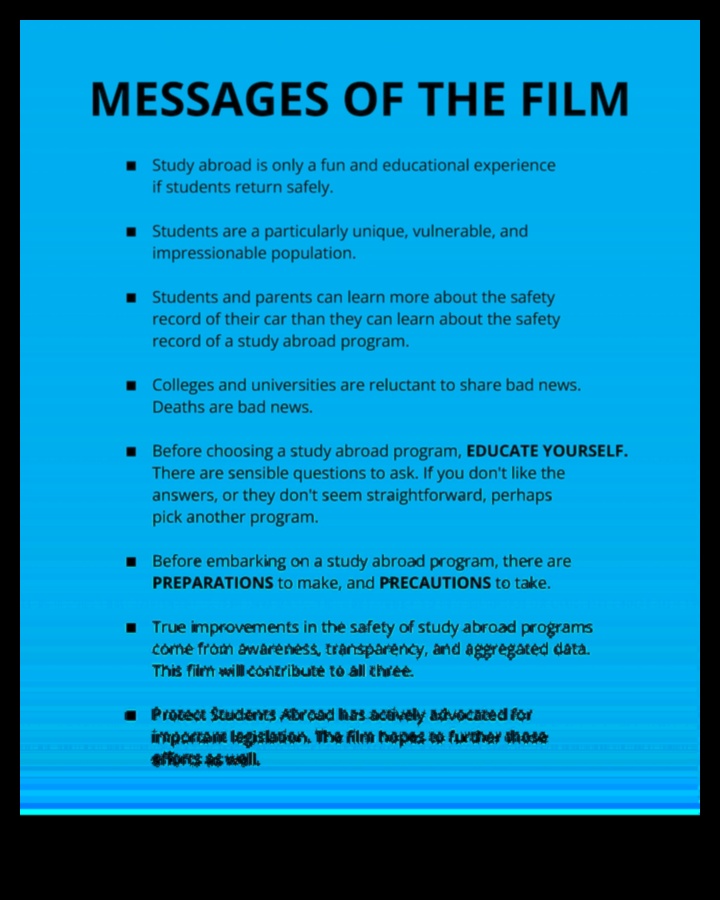
How to Study Abroad in College
II. Benefits of studying abroad
III. How to choose a study abroad program
IV. Financing your study abroad experience
V. Applying for a study abroad program
VI. Getting ready to study abroad
VII. Arriving in your study abroad destination
VIII. Living and studying abroad
IX. Returning home from your study abroad experience
X. FAQ
* study abroad
* college
* international students
* study abroad scholarships
* study abroad programs
People who search for “how to study abroad in college” are looking for information on how to apply to study abroad programs, find scholarships and financial aid, and prepare for the experience. They may also be interested in learning about the different countries and cultures that they can study in, and the different types of programs that are available.
The search intent for this keyword is informational, as people are looking for information to help them make a decision about whether or not to study abroad. They may also be looking for information to help them prepare for the application process or to find scholarships and financial aid.
Here are some of the specific questions that people who search for “how to study abroad in college” may be trying to answer:
* What are the different types of study abroad programs?
* How do I apply to a study abroad program?
* What are the costs of studying abroad?
* How do I find scholarships and financial aid for studying abroad?
* What are the different countries and cultures that I can study in?
* What do I need to do to prepare for studying abroad?
By understanding the search intent for this keyword, we can create content that is relevant and helpful to people who are looking for information on studying abroad. This content can include blog posts, articles, guides, and even videos. We can also use this information to create targeted paid advertising campaigns that will reach people who are interested in studying abroad.
| Feature | Description |
|---|---|
| Study abroad | The act of studying in a foreign country for a period of time. |
| College | An institution of higher education that offers undergraduate and graduate degrees. |
| International students | Students who come from a country other than the one in which they are studying. |
| Study abroad scholarships | Financial awards that are given to students who want to study abroad. |
| Study abroad programs | Educational programs that are offered in foreign countries. |

II. Benefits of studying abroad
Studying abroad can be a life-changing experience that offers a number of benefits, including:
- Improved language skills
- Cultural awareness
- Increased global perspective
- Personal growth
- Networking opportunities
- Career benefits
For more information on the benefits of studying abroad, please see our article on the benefits of studying abroad.
III. How to choose a study abroad program
There are many factors to consider when choosing a study abroad program. Some of the most important include:
* The country or region you want to study in.
* The type of program you want to participate in.
* The length of time you want to study abroad.
* Your budget.
* Your academic interests.
* Your personal interests.
* Your desired level of cultural immersion.
Once you have considered these factors, you can start narrowing down your options. You can do this by doing research online, talking to your academic advisor, and contacting study abroad offices at your college or university.
When you are researching study abroad programs, it is important to pay attention to the following:
* The program’s academic rigor.
* The program’s location.
* The program’s cost.
* The program’s length.
* The program’s housing options.
* The program’s support services.
* The program’s student-to-faculty ratio.
* The program’s application process.
It is also important to read reviews of the program from previous students. This can give you a good idea of what to expect from the program and whether it is a good fit for you.
Once you have found a few programs that you are interested in, you can contact the program directors to learn more about them. They can answer any questions you have about the program and help you decide if it is right for you.

III. How to choose a study abroad program
There are many different factors to consider when choosing a study abroad program. Some of the most important things to think about include:
* The country or region you want to study in
* The type of program you want to participate in
* The duration of the program
* The cost of the program
* The academic requirements of the program
* The cultural fit of the program
Once you have considered these factors, you can start to narrow down your options. There are a number of resources available to help you find the right study abroad program for you. You can search online, talk to your academic advisor, or contact a study abroad advisor at your school.
Once you have found a few programs that you are interested in, it is important to do your research to make sure that they are a good fit for you. Read through the program descriptions, talk to current students, and visit the program website. You should also make sure that the program is accredited by a reputable organization.
Choosing a study abroad program is an important decision. By taking the time to do your research, you can find a program that will be a rewarding and enriching experience.

V. Applying for a study abroad program
Applying for a study abroad program can be a daunting task, but it is important to remember that you are not alone. There are many resources available to help you through the process, and the rewards of studying abroad are well worth the effort.
The first step in applying for a study abroad program is to do your research. There are many different programs to choose from, so it is important to find one that is right for you. Consider your academic interests, your budget, and your desired location.
Once you have found a few programs that you are interested in, it is time to start the application process. Most programs will require you to submit a transcript, a letter of recommendation, and a personal statement. You may also be required to take a standardized test, such as the TOEFL or IELTS.
The application process can take several months, so it is important to start early. The sooner you apply, the more likely you are to be accepted into your dream program.
If you are accepted into a study abroad program, you will need to start preparing for your departure. This includes getting your passport and visa, arranging for your housing, and purchasing your travel insurance.
Studying abroad is an amazing opportunity to learn about new cultures, meet new people, and make lifelong memories. By following these steps, you can increase your chances of being accepted into a study abroad program and making the most of your experience.

VI. Getting ready to study abroad
Getting ready to study abroad can be an exciting but also overwhelming experience. There are a lot of things to think about and prepare for, but by breaking the process down into smaller steps, it can be manageable.
Here are a few things to keep in mind as you get ready to study abroad:
- Start planning early. The application process for study abroad programs can take several months, so it’s important to start planning as early as possible.
- Do your research. There are a lot of different study abroad programs out there, so it’s important to do your research and find a program that’s right for you.
- Get your finances in order. Studying abroad can be expensive, so it’s important to make sure you have the financial resources to support yourself.
- Prepare yourself mentally and emotionally. Studying abroad can be a challenging experience, but it can also be an incredibly rewarding one. It’s important to prepare yourself mentally and emotionally for the challenges that you may face.
By following these tips, you can make the process of getting ready to study abroad as smooth and stress-free as possible.
VII. Arriving in your study abroad destination
Arriving in your study abroad destination can be an exciting and overwhelming experience. Here are a few things to keep in mind to help make your transition as smooth as possible:
- Do your research. Before you arrive, make sure to do your research on the country and city where you’ll be studying. Learn about the culture, the climate, and the transportation options. This will help you make the most of your time abroad.
- Pack light. You’ll be doing a lot of walking and traveling, so it’s important to pack light. Choose clothes that are comfortable and easy to care for.
- Get organized. Once you arrive, it’s important to get organized. Find a place to store your belongings, and create a schedule for your classes and activities.
- Be open to new experiences. Studying abroad is a great opportunity to learn about new cultures and meet new people. Be open to new experiences, and don’t be afraid to step outside of your comfort zone.
Arriving in your study abroad destination can be a daunting experience, but it’s also an exciting one. By following these tips, you can make your transition as smooth as possible and enjoy the experience to the fullest.
Living and studying abroad
Living and studying abroad can be an amazing experience, but it can also be challenging. Here are some tips for making the most of your time abroad:
- Be open to new experiences.
- Embrace the culture of your host country.
- Make friends with locals and other international students.
- Get involved in extracurricular activities.
- Take advantage of the opportunity to learn about a new culture and language.
Studying abroad can be a great way to grow as a person and learn about the world. By following these tips, you can make the most of your time abroad and have a truly unforgettable experience.
IX. Returning home from your study abroad experience
Returning home from your study abroad experience can be a challenging experience. You may be feeling a mix of emotions, including excitement, sadness, and nostalgia. It’s important to give yourself time to adjust to being back home and to process your experiences.
Here are some tips for returning home from your study abroad experience:
- Take some time to relax and decompress.
- Reconnect with your friends and family.
- Talk about your experiences with others.
- Set goals for the future.
- Be patient with yourself as you adjust to being back home.
Returning home from your study abroad experience can be a great opportunity to reflect on your experiences and to make plans for the future.
X. FAQ
Here are 3 questions and 3 answers about studying abroad in college:
Question 1: What are the different types of study abroad programs?
Answer 1: There are many different types of study abroad programs, including:
- Exchange programs: These programs allow students to study at a university or college in another country for a semester or academic year.
- Intensive language programs: These programs focus on teaching students a foreign language in a immersive environment.
- Summer programs: These programs allow students to study abroad for a shorter period of time, typically during the summer.
- Gap year programs: These programs allow students to take a year off from school to study abroad and travel.
Question 2: How do I apply to a study abroad program?
Answer 2: The application process for study abroad programs varies depending on the program. However, there are some general steps that you can follow:
- Research different study abroad programs and find one that is a good fit for your interests and goals.
- Contact the program coordinator to learn more about the application process and deadlines.
- Submit your application materials, which may include your transcripts, a personal statement, and letters of recommendation.
- Interview with the program coordinator if necessary.
- Wait for the program coordinator to notify you of your acceptance status.
Question 3: What are the costs of studying abroad?
Answer 3: The cost of studying abroad varies depending on the program, the country you are studying in, and your personal expenses. However, there are some general costs that you can expect to incur, including:
- Tuition and fees: The cost of tuition and fees will vary depending on the program and the university or college you are attending.
- Airfare: The cost of airfare will vary depending on your departure city and the country you are studying in.
- Living expenses: The cost of living expenses will vary depending on the country you are studying in and your lifestyle.
- Travel expenses: You may also incur travel expenses, such as transportation costs and admission fees to attractions.